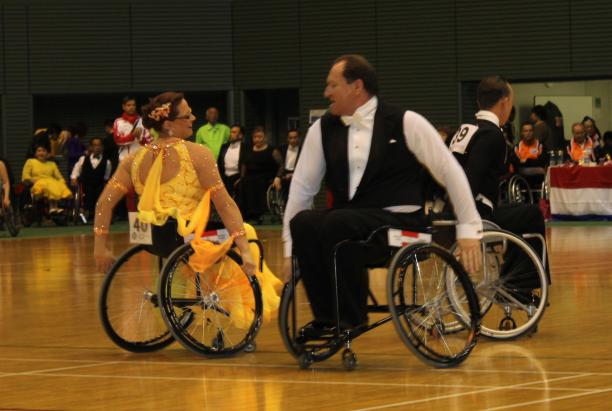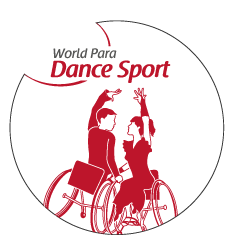Dancers Kaiser and Kroell swap balls for ballroom
04.11.2014As wheelchair basketball players, the Austrian pairing of Werner Kaiser and Brigitte Kroell have been perfecting more graceful moves than they are used to ahead of the IPC Wheelchair Dance Sport European Championships.
 Wheelchair dancers Werner Kaiser and Brigitte Kroell from Austria at the Tokyo 2013 IPC Wheelchair Dance Sport World Championships.
© • IPC
Wheelchair dancers Werner Kaiser and Brigitte Kroell from Austria at the Tokyo 2013 IPC Wheelchair Dance Sport World Championships.
© • IPC
Austrian wheelchair dancers Werner Kaiser and Brigitte Kroell will be swapping the basketball court for the dance floor from 7-8 November at the 2014 IPC Wheelchair Dance Sport European Championships in Lomianki, Poland.
After meeting whilst playing wheelchair basketball, Kroell approached her teammate Kaiser in 2010 after hearing about wheelchair dance training taking place in Vienna. Kaiser agreed that he would go along with his friend to try-out and support her in her dreams.
Kroell admits she always had a longing for dance. “In my family there always was a lot of dancing, ballroom and folk,” she said. “Only I thought I couldn't because of my disability. But I always wanted to do it despite the wheelchair.”
Kaiser found that the sport was an opportunity to continue something he enjoyed after a motorcycle accident left him paraplegic. “I always liked to dance. After my accident, I thought it is no longer possible, but it turned out differently.”
The pair did not look back and now they are heading to their first Euros after competing in the 2013 IPC Wheelchair Dance Sport World Championships in Tokyo, Japan, in December.
“We both take the training very seriously and always want to learn more,” Kaiser said. “We have been friends for years, we respect us, we laugh a lot together and we both like this sport very much.”
After a disappointing seventh and 10th place finish at Tokyo 2013, which followed a seventh and eighth place finish in the world rankings for duo standard class 2 and duo Latin class 2 respectively, Kaiser and Kroell have made their way up the standings in 2014. They are now ahead of Ukrainian world champions Nadiia and Ivan Sivak.
They are currently third and fourth for Latin and standard behind some stiff competition in the form of Russian couples Aleksandra Berdnik and Sergey Antonov and Irina Gordeeva and Dmitry Torgunakov.
Both Kaiser and Kroell agree that their path to the podium will not be easy. “The biggest challengers are of course the couples from Ukraine, Russia and Poland,” they said. “But [we aim] to improve [our] skills, [our] movements, the presentation of the choreography to such a professional level, so that you no longer see the wheelchair, but only the fascination of dancing.”
The Euros will be a chance for the pair to consolidate their progress from beginners to high performance dancers in just a few years and take stock of what they have achieved. “One can reach a lot,” Kroell said. “One only needs to want it and sometimes to work hard for it. There is no need to motivate me for training and dancing - it's my passion.”
Lominaki 2014 will feature over 110 athletes from 20 countries and is the first European Championships to take place since 2009.





















